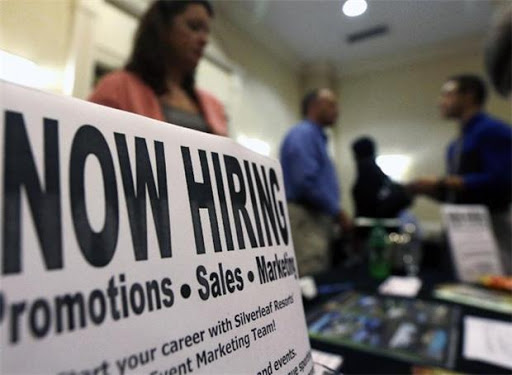More than 6 million file jobless claims in US


The shutdown in the United States caused by the coronavirus pandemic continued to pound the economy as 6.6 million Americans filed initial jobless claims for the week ended April 4, the Labor Department reported Thursday.
Economists surveyed by The Wall Street Journal expected 5 million new unemployment claims.
The latest flood of jobless claims boosted the number filed in the last three weeks to more than 16 million, compared with a total of 11.5 million this year through March 14 or just before stay-at-home orders shut down the economy and put millions out of work.
It's as if the "economy as a whole has fallen into some sudden black hole," Kathy Bostjancic, chief US financial economist at Oxford Economics, told The New York Times.
Federal help for the unemployed is on the way in the US. The first stimulus checks are expected to reach millions of people next week – and possibly as soon as this week.
The money is part of a $2.2 trillion stimulus package signed into law by President Donald Trump. It's intended to assist the unemployed with daily expenses and help revive a stalled economy.
The job market had been strong prior to the economic shutdown and unemployment was at 3.5 percent, near a record low. In the six months prior to the shutdown, non-farm employers hired an average of 221,000 workers a month, the Labor Department said.
Most of last week's job losses were in restaurants and bars, the Labor Department reported.
Eligibility for unemployment benefits has been expanded to include self-employed and independent contractors. This boosts the number of claims filed.
The coronavirus pandemic, also called COVID-19, has disrupted the world economy, shutting down production, gutting demand for oil and travel while throwing the stock market into turmoil.
In the US, the coronavirus death toll neared 15,000 Thursday with more than 430,000 confirmed cases. Worldwide, there are about 88,500 deaths and 1.5 million confirmed cases, Johns Hopkins University reported.
But the number of new infections in some areas appears to be declining and in some cities, including New York, the number of new patients admitted to hospitals is lower than the number of those released after recovering from the infection.
That positive sign, and the possibility of restarting the economy, boosted Wall Street's outlook.
On Thursday, US stocks opened strongly. The Dow Jones Industrial Average rose 460.06 points in early trading, or 1.98 percent, to 23,894.88. The S&P 500 gained 1.73 percent. The Nasdaq Composite was up 1.33 percent.
Oil futures rose. The price of oil is a proxy for future economic activity.
The yield on the 10-year US Treasury Bond dipped slightly, suggesting renewed interest in equities and a willingness among investors to accept greater risk for higher returns.
The market was positive Wednesday. The Dow rose 779 points, or 3.44 percent. The S&P 500 and Nasdaq Composite also gained.
"The biggest direct impact of the loss of jobs is going to be the loss of income and therefore the loss of spending," Jacob Robbins, assistant professor of economics at the University of Illinois at Chicago, told The Wall Street Journal.
Consumer spending represents about 70 percent of the US gross national product. The stimulus package is intended to prevent a downward economic spiral where unemployment means less spending and that causes others to lose their jobs, creating further disruption as the cycle repeats.
The first to receive the stimulus checks – perhaps as many as 60 million this week or next – have provided direct deposit bank information to the Internal Revenue Service when filing their tax returns. Those who have not provided such information are expected to receive paper checks this summer.
Government-backed loans will be offered to small businesses and large companies as part of the relief effort.
































